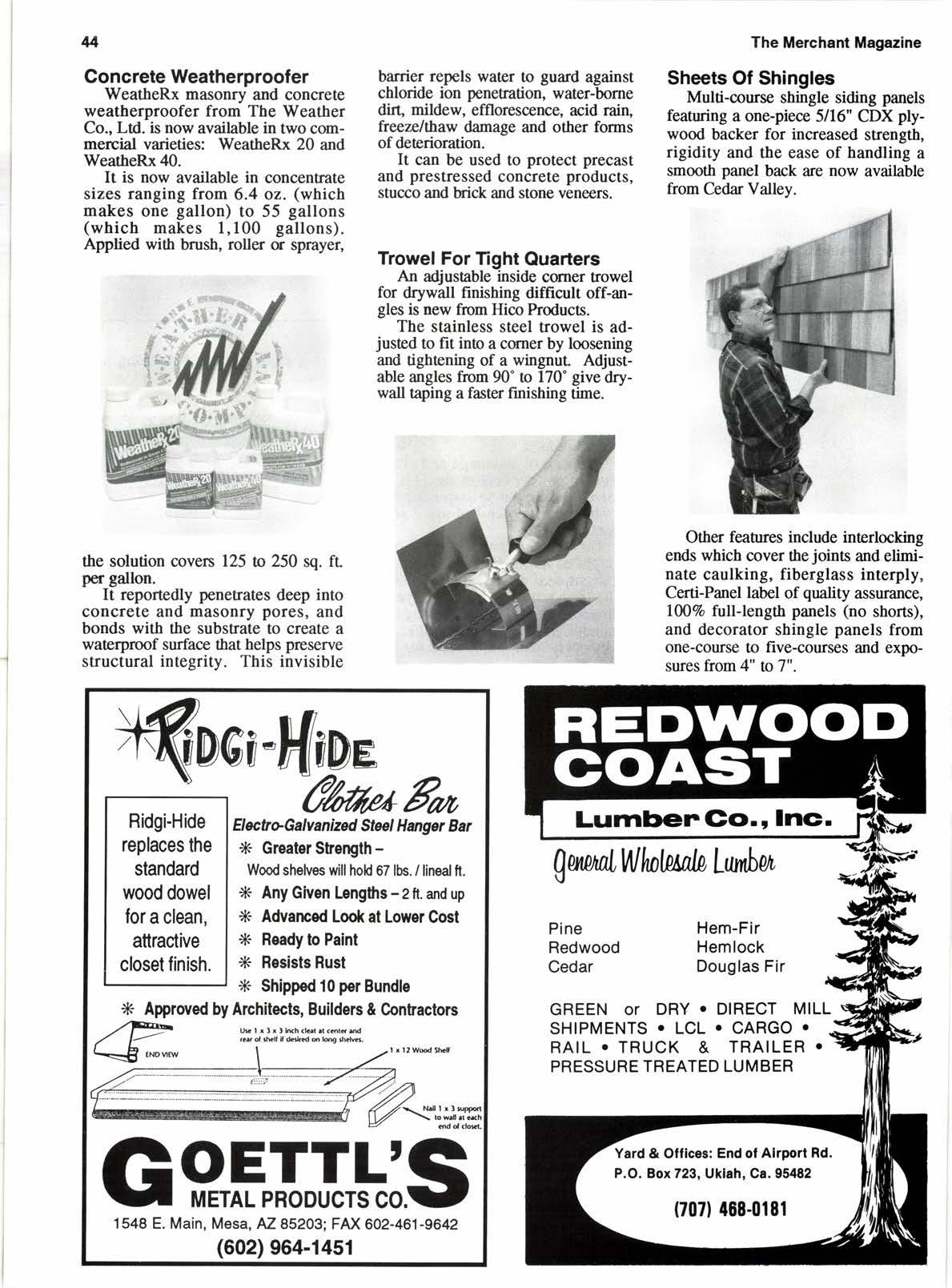
1 minute read
EDITIORIAL
Tom Swift's electronic whatsit
Now that virtually all retailers and wholesalers have computers there seems to be a tendency to consider the conversion to high tech complete. Forget that - the fun has just begun.
As the technology cornucopia spills out new products faster than your computer can develop glitches, it becomes harder to keep up and fully utilize these new marvels. Scanners, bar codes, satellite networks, integrated systems with networked PCs, in-car faxes, improved calculators, laptop computers and cellular phones are just some of the devices producing efficiencies undreamed of until recently.
While it's important for management to commit to purchase and fully exploit technological advances, this is easier said than done. In real life, the actual performance of high tech can fall woefully short of the extravagant promises made for it. Result number one: costly failures. Result number two: management hesitancy to be twice burned.
Sellers of these electronic miracles contend that buyers don't fully utilize all the capacities and abilities of their devices. They lament that often employees operate them at less than 50Vo of their
DAVID CUTLER editor- publisher
design capability. Unless management provides proper training and insists that employees make the marvels run to full capacity, the return on investment in dollars and efficiency will be far short of ideal.
Yet instruction manuals tend to be murky at best and go down hill from there. Too often technobabble substitutes for plain English. Manuals often are written, it seems, by computer programmers more interested in impressing other prograrnmers than telling the baffled user how the thing works. And when all this is translated from the original Japanese, well...
Despite the cost, confusion and exasperation, these new results of the high technology revolution are essential for the profitability and long term survival of any company. Whether we like it or not" they're here and we bad best learn to live with them. Not at minimal function, but as close to l00qo as possible.
You can be sure that your competition is making full use of every new device to be more effective. If you don't continue to embrace and utilize high tech, what do you think is going tro happen?











